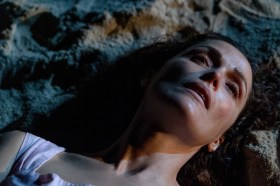Black Panther: Wakanda Forever brings the Hollywood blockbuster back in all its glory – as will be detailed below.
But first, far from the sheer unquenchable gutsiness of Wakanda, the large US media companies with shareholders have been publishing their results for their 3rd quarter which ends on 1 October. They are climbing a vast arcane liana of slowly improving numbers.
The implications of these figures could affect all of our viewing habits so we should pause to consider them.
AMC is the largest cinema chain in the world and dominates the US market. It lost $340m in the second quarter of this year, up 27% on the same quarter last year. CEO Adam Aron has been in public over the last few days claiming that the second half of the calendar year will be much better.
He firmly believes that studios have learnt that skipping a cinema release in favour of streaming is now a dead strategy. Aron’s AMC share price depends on this, but our weekly coverage supports the idea. There is very little depth to the market, which relies on the top few films, but the blockbusters are getting solid support, and fewer of them are being windowed by streaming.
In other words, day and date is disappearing, and the exhibitors are dropping a big fat leech onto the jungle floor.
Aron’s position is backed by Richard Gelfond, the IMAX CEO, speaking to Yahoo Finance. ‘The argument that you can skip a theatrical window and make up for it on streaming just isn’t true. The theatrical window is more essential than ever to get the streaming revenue.’
The streaming elements of these public companies are reporting deep losses. Disney+, Hulu, and ESPN+ are on the backfoot due to what Yahoo calls ‘an adverse foreign exchange impact and a larger subscriber mix’. Even so, no-one is predicting financial collapse.
But Aron’s real point is even more fundamental. The state of the business does not depend on the streaming problem, or the wider issues with Covid – instead, the simple lack of great product is starving the multiplexes. The Australian exhibitors, so dependent on those big films to survive, would surely agree with him emphatically.
Next year, we can expect the blockbusters to claim even more space in the multiplexes. Australian producers will grab more Hollywood overflow to keep the studios busy – although our dollar has to stay low compared to the US.
The Australian box office
Meanwhile, the evidence for Adam Aron’s upturn has arrived in our market.
Black Panther: Wakanda Forever roared into the Australian box office this weekend with $10.61m off 863 screens. Black Adam had a similar push three weeks ago, to make $8.81m in its first weekend.
Read: Black Panther – Wakanda Forever is a triumphant epic of loss
In the least surprising insight of the century, the figures illustrate how much audiences prefer high-octane adventure to grown-up, serious movies. Ten to one or so, if these figures are typical.
But other than these blockbuster releases, the cinemas are pretty quiet. Mrs Harris Goes to Paris is doing well, with $5.6m in three weeks and $750,000 this weekend to take third place on the league table. Horror film Smile is at number four with $8.2m over seven weeks. But its weekend figure of $203,000 is low and shows us that the audience action was crammed into that top three.
In the US
In the North American market, exhibitors made $270m off Wakanda, with $225m from the rest of the world. [All figures in current AU$]. The budget is estimated at $375m, so the picture is chasing a break even figure which may be around $900m.
Deadline puts the Wakanda result as the third best since Covid started, and better than Black Panther, taking holidays into account.
But social media suggests that Asian audiences are having trouble with the tone of the film, and the comparative lack of action, while South Korea is still grieving for the Halloween disaster. The Latin American market is going well.
The Chinese market remains totally closed to foreign films, though the release of domestic murder film Tipping Point has brought some new energy to a slowing market.
Here is a story, picked up by Variety, that demonstrates the sheer financial perversity of the business.
Warner Bros Discovery canned Scoob: Holiday Haunt on August 2, leaving directors Michael Kurinski and Bill Haller utterly flummoxed, staring at their social media in the back of a taxi. They were a couple of months away from finishing, exhausted by a very tight two year schedule aimed at launching the gormless dog into HBO Max for the 2022 Xmas market. However, Warners had already paid them, and was financially committed to finishing the film.
That is what the directors did, and it has now been delivered to the company. Why was it stopped? Batgirl is in the same predicament. By not releasing these two films, Warner would make more money as a tax write-off than they can earn on the film, presumably because they are streamers rather than cinema projects. But in order to get that, the company must never release it to any paying audience in any form anywhere in the world.
This weekend
Mel Gibson returns to our screens for On The Line, a thriller directed by Romuald Boulanger, a French writer-producer. According to the reviews, it is execrable. She Said is much better, a true-life journalism investigation into Harvey Weinstein with the wonderful Carey Mulligan. Reviews here are pretty good, though there are some lead-footed responses as well.
The film of the week comes from Netflix which is releasing BARDO, False Chronicle of a Handful of Truths, an exercise in visual extremism from Alejandro G Iñárritu, who directed and produced The Revenant, Birdman, Babel and 21 Grams which yielded four Oscars.
The streamer describes it like this: ‘A renowned Mexican journalist and documentary filmmaker returns home and works through an existential crisis as he grapples with his identity, familial relationships and the folly of his memories.’
According to the Washington Post: ‘The next 2½ hours unfold as a series of random but thematically connected moments from Silverio’s life, in which he meditates on love, loss, Mexican national identity and his own inadequacies in a world governed by dream logic and a fetishistic attraction to stunning imagery for its own sake.’
Or maybe, in the words of The Daily Beast: ‘A deep dive into shallow existential waters.’





